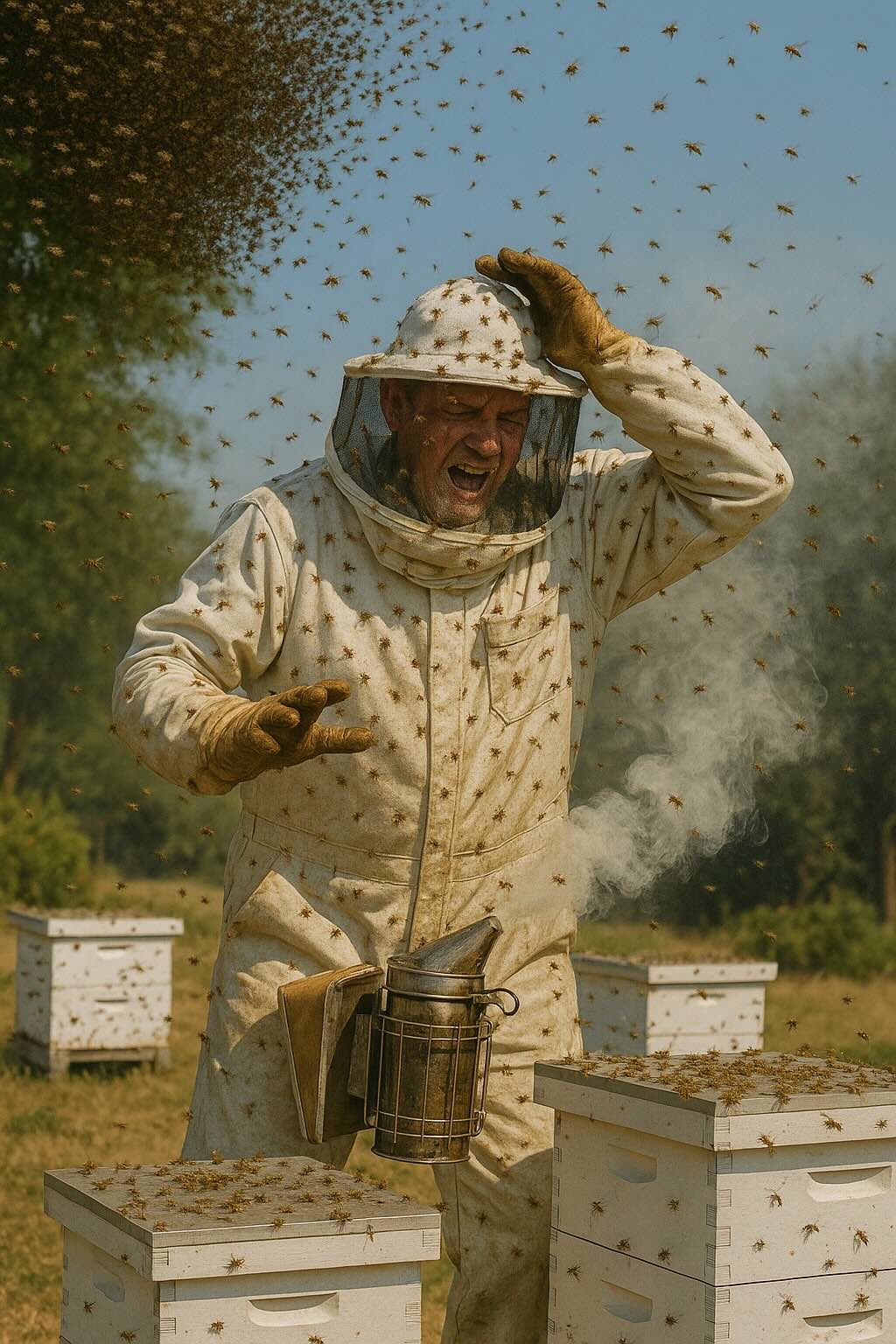

The northward migration of Apis mellifera scutellata (Africanized Honey Bees, AHB) has slowed significantly since their initial detection in Texas in 1990. Early projections predicted a rapid invasion of the entire continental United States. However, more than three decades later, their range has stabilized primarily in the southern and southwestern states. This unexpected slowdown reflects a combination of biological, climatic, ecological, and behavioral limitations rather than a lack of dispersal capability.
According to the USDA Agricultural Research Service (ARS), the primary federal agency monitoring Africanized bee spread, AHB colonies are biologically capable of surviving across diverse environments but face constraints tied to energy storage, colony structure, and seasonal resource availability. While Africanized bees are more aggressive and prolific than European honeybees (EHB), these same traits impose metabolic costs that reduce their survival in temperate climates.
Unlike European honeybees, Africanized hybrids store significantly less honey and construct smaller nests. These traits evolved in tropical and subtropical ecosystems where nectar and pollen are available year-round. In colder regions, however, limited honey reserves translate directly into winter starvation. European honeybees, by contrast, evolved in temperate Europe and developed behavioral adaptations for long winters, including large colony populations and extensive honey storage.
Behavioral ecology further restricts Africanized bee expansion. AHB colonies exhibit high rates of absconding (complete nest abandonment) and frequent swarming. While these behaviors enhance survival in unpredictable tropical environments, they fragment colony populations and drain energy reserves in cooler climates. During late summer and autumn—critical periods for resource accumulation—these behaviors reduce the colony’s ability to store sufficient food for winter survival.
Research from the University of California, Riverside Center for Invasive Species Research (CISR) highlights the role of invasive species dynamics in shaping AHB distribution. Africanized bees compete with native pollinators and European honeybees, but their competitive advantage diminishes in regions with seasonal resource bottlenecks. In ecosystems where floral diversity declines sharply during winter, Africanized colonies experience disproportionate mortality compared to European strains.
Studies conducted by the University of Florida Institute of Food and Agricultural Sciences (UF IFAS) reveal a deeper metabolic explanation for this phenomenon. Africanized bees exhibit higher baseline metabolic rates and greater activity levels, which increase energy consumption. In the southeastern United States, mild winters create what researchers describe as a "metabolic trap." Temperatures above 50°F stimulate foraging behavior, but the absence of flowering plants means bees expend energy without replenishing it. This mismatch between activity and resource availability leads to accelerated colony collapse before spring nectar flows begin.
Climatic barriers also play a decisive role. The U.S. Geological Survey (USGS) has mapped climatic thresholds that correlate strongly with AHB survival rates. Extended periods of freezing temperatures, prolonged snow cover, and seasonal variability reduce the likelihood of sustainable Africanized populations in northern latitudes. These findings challenge early assumptions that AHB would eventually dominate all North American bee populations.
Beyond biology and climate, human land use patterns further shape Africanized bee distribution. Urbanization, agricultural monocultures, and pesticide exposure reduce the availability of continuous forage corridors needed for stable colony expansion. While Africanized bees thrive in fragmented landscapes during warm seasons, they struggle to establish long-term populations in regions where seasonal resources are discontinuous.
Taken together, these factors demonstrate that the Africanized Honey Bee is not simply limited by geography but by an intricate interaction between metabolism, behavior, climate, and ecosystem structure. Rather than an unstoppable invasive species, AHB represents a case study in how evolutionary adaptations optimized for one environment can become liabilities in another. As a result, the northward expansion of Africanized honeybees has effectively reached a climatic and ecological ceiling in the United States.